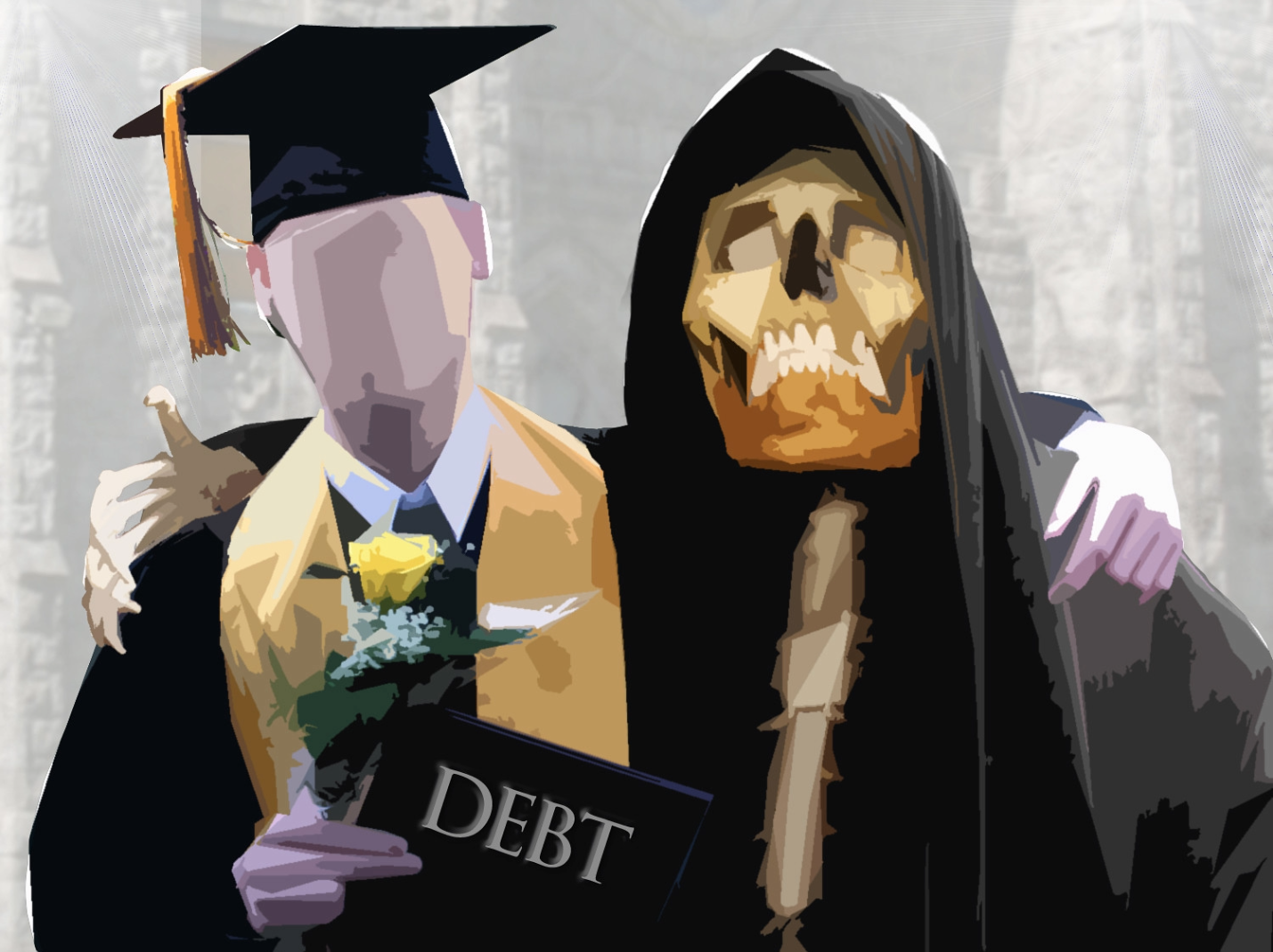
The English language is not strong enough, nor are my skills in using it, to fully describe the unmitigated disaster that the federal program of financial assistance for college students has been, especially in the case of student loans. That program has:
- Incentivized academic mediocrity and penalized academic merit and accomplishment;
- Materially raised the cost of attending college;
- Financed costly administrative bloat that crowds out emphasizing the core collegiate missions of creating and disseminating knowledge and useful ideas;
- Increased incentives to major in subjects with little vocational relevance, promoting ideological agendas largely unpopular with the financial supporters of colleges, the American people;
- Materially contributed to the burgeoning and unsustainable rise in the national debt;
- Caused massive inequities by discriminating against those not attending college;
- Probably lowered marriage rates, fertility, and the employment-population ratio;
- Reduced respect for financial obligations and incentivized breaking legal commitments;
- Failed to achieve the even dubiously legitimate objective of promoting the job security of incumbent politicians.
The program probably has not been as harmful as, say, giving nuclear weapons to Iran or North Korea would have been, or giving free booze or drugs to alcoholics and addicts, but it is not much better.
Alas, space constraints prevent me from elaborating further on the details of the federal student loan abomination here. Let’s instead concentrate on some new policy proposals in Washington, D.C. that would bring some modest improvements, turning a disastrous program into one somewhat less injurious.
First, the Trump Administration has informed the approximately 42 million student loan borrowers who have accumulated about $1.7 trillion in federal student loan debt that they must resume making payments on their loans or face unfavorable consequences, including significant reductions in their credit ratings.
Like private lenders, the administration is promising to pursue borrowers who failed to fulfill their legal obligations. Joe Biden, and/or, very possibly, his unelected adult caretakers, were attempting to give complete loan forgiveness to borrowers, which was not only unsound fiscally and dubious constitutionally, but also unfair to those honoring their loan obligations, and to others who would like to have borrowed cheaply from the Feds for other purposes.
[RELATED: ‘Money Does Not Grow on Trees’: Taxpayers Must Cap Student Loan Lending]
Second, the administration indicated that it will impose limits on borrowing. (Read Kali Jerrard’s “It’s Not Just a Bill. It’s a Big, Beautiful Bill.”) This means not approving loans for six-digit sums of money to those pursuing professional degrees. I would go much further, saying no one can borrow money from the federal government for more than, say, five years of college expenses. Better yet, give bonuses to students who borrow less by earning their degree in, say, three years. (Best of all: privatize the entire program.)
Congress could, and constitutionally should, play a big role in reform, but given the stasis in Washington, bold legislatively induced reform is unlikely anytime soon.
If I were an absolute ruler, I would completely privatize student lending. The private sector would rise to the occasion by providing financial assistance to those who are both in need and have a good chance in succeeding to use their college training profitably for themselves and society.
One congressional reform being touted in the House Committee on Education & the Workforce would compel colleges to have some “skin in the game” concerning college loans. Sometimes colleges are desperate for students—a growing phenomenon—and entice students with mediocre secondary school preparation or prospects for success to enroll. If a student fails to graduate and defaults on their student loan, taxpayers are burdened. But shouldn’t the school that enticed the student to enroll share in the cost of the unpaid debt?
Given the likely veto power congressional Democrats have over any legislation due to Senate supermajority voting requirements, the chances for real reform are weak, as the Democratic Party is heavily dependent on higher education for both financial support and intellectual firepower.
Perhaps deals could be made. For example, end or radically reform federal student loans in return for a healthy expansion of Pell Grant scholarships for lower-income students. Another possibility is to eliminate loan eligibility for students from upper-income families in return for a five-year lifetime limit on such eligibility for all.
Yet given the overall largely bipartisan fiscal irresponsibility of our national legislature, I am cautiously pessimistic regarding the prospects for reform, despite the many problems outlined at the beginning of this cri de coeur.
Image: “Indentured Student – Cartoon” by DonkeyHotey on Flickr
The rationale for federalizing student loans ~2012-3 by Obama was that the interest on the loans would be used to subsidize the ACA/Obamacare. Biden obviously not only threw this idea out the window but threw away hundreds of billions in interest income for 2020-2025 in addition to the loans he abrogated.